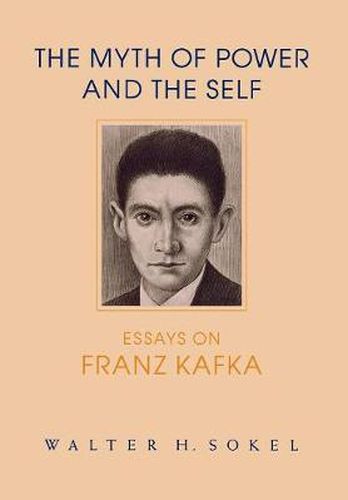Readings Newsletter
Become a Readings Member to make your shopping experience even easier.
Sign in or sign up for free!
You’re not far away from qualifying for FREE standard shipping within Australia
You’ve qualified for FREE standard shipping within Australia
The cart is loading…






This title is printed to order. This book may have been self-published. If so, we cannot guarantee the quality of the content. In the main most books will have gone through the editing process however some may not. We therefore suggest that you be aware of this before ordering this book. If in doubt check either the author or publisher’s details as we are unable to accept any returns unless they are faulty. Please contact us if you have any questions.
A collection of essays on Franz Kafka by the foremost scholar of Kafka. Franz Kafka (1883-1924) has come to be one of the most influential writers of the twentieth century. Born into a Jewish middle-class family in Prague, Bohemia, Kafka was in many ways a solitary figure, isolated in his own mind from any true community of friendship and alienated from his own Jewish heritage. Kafka’s writings reflect his inner turmoil, and his novels became a symbol of the anxiety and alienation that pervaded much of twentieth-century society. The Myth of Power and the Self brings together Walter Sokel’s most significant essays on Kafka written over a period of thirty-one years, 1966-1997. This volume begins with a discussion of Sokel’s 1966 pamphlet on Kafka and a summary of his 1964 book, Tragik und Ironie (Tragedy and Irony), which has never been translated into English, and includes several essays published in English for the first time. Sokel places Kafka’s writings in a very large cultural context by fusing Freudian and Expressionist perspectives and incorporating more theoretical approaches - linguistic theory, Gnosticism, and aspects of Derrida - into his synthesis. This superb collection of essays by one of the most qualified Kafka scholars today will bring new understanding to Kafka’s work and will be of interest to literary critics, intellectual historians, and students and scholars of German literature and Kafka.
$9.00 standard shipping within Australia
FREE standard shipping within Australia for orders over $100.00
Express & International shipping calculated at checkout
This title is printed to order. This book may have been self-published. If so, we cannot guarantee the quality of the content. In the main most books will have gone through the editing process however some may not. We therefore suggest that you be aware of this before ordering this book. If in doubt check either the author or publisher’s details as we are unable to accept any returns unless they are faulty. Please contact us if you have any questions.
A collection of essays on Franz Kafka by the foremost scholar of Kafka. Franz Kafka (1883-1924) has come to be one of the most influential writers of the twentieth century. Born into a Jewish middle-class family in Prague, Bohemia, Kafka was in many ways a solitary figure, isolated in his own mind from any true community of friendship and alienated from his own Jewish heritage. Kafka’s writings reflect his inner turmoil, and his novels became a symbol of the anxiety and alienation that pervaded much of twentieth-century society. The Myth of Power and the Self brings together Walter Sokel’s most significant essays on Kafka written over a period of thirty-one years, 1966-1997. This volume begins with a discussion of Sokel’s 1966 pamphlet on Kafka and a summary of his 1964 book, Tragik und Ironie (Tragedy and Irony), which has never been translated into English, and includes several essays published in English for the first time. Sokel places Kafka’s writings in a very large cultural context by fusing Freudian and Expressionist perspectives and incorporating more theoretical approaches - linguistic theory, Gnosticism, and aspects of Derrida - into his synthesis. This superb collection of essays by one of the most qualified Kafka scholars today will bring new understanding to Kafka’s work and will be of interest to literary critics, intellectual historians, and students and scholars of German literature and Kafka.